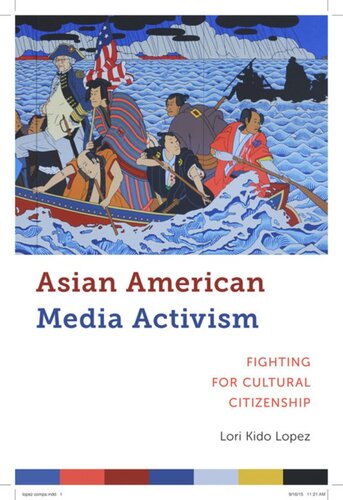

Most ebook files are in PDF format, so you can easily read them using various software such as Foxit Reader or directly on the Google Chrome browser.
Some ebook files are released by publishers in other formats such as .awz, .mobi, .epub, .fb2, etc. You may need to install specific software to read these formats on mobile/PC, such as Calibre.
Please read the tutorial at this link: https://ebookbell.com/faq
We offer FREE conversion to the popular formats you request; however, this may take some time. Therefore, right after payment, please email us, and we will try to provide the service as quickly as possible.
For some exceptional file formats or broken links (if any), please refrain from opening any disputes. Instead, email us first, and we will try to assist within a maximum of 6 hours.
EbookBell Team

4.7
46 reviewsChoice Top 25 Academic Title
How activists and minority communities use media to facilitate social change and achieve cultural citizenship.
Among the most well-known YouTubers are a cadre of talented Asian American performers, including comedian Ryan Higa and makeup artist Michelle Phan. Yet beneath the sheen of these online success stories lies a problem—Asian Americans remain sorely underrepresented in mainstream film and television. When they do appear on screen, they are often relegated to demeaning stereotypes such as the comical foreigner, the sexy girlfriend, or the martial arts villain.
The story that remains untold is that as long as these inequities have existed, Asian Americans have been fighting back—joining together to protest offensive imagery, support Asian American actors and industry workers, and make their voices heard. Providing a cultural history and ethnography, Asian American Media Activism assesses everything from grassroots collectives in the 1970s up to contemporary engagements by fan groups, advertising agencies, and users on YouTube and Twitter. In linking these different forms of activism, Lori Kido Lopez investigates how Asian American media activism takes place and evaluates what kinds of interventions are most effective. Ultimately, Lopez finds that activists must be understood as fighting for cultural citizenship, a deeper sense of belonging and acceptance within a nation that has long rejected them.